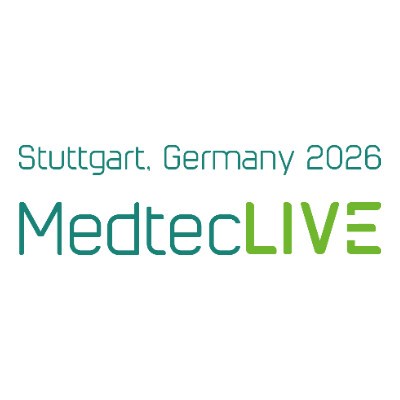Digital healthcare apps: Close to the breakthrough
The passage of the Act to Improve Healthcare Provision through Digitalization and Innovation (the Digital Healthcare Act, DVG) in December 2019 finally paves the way for the use of digital healthcare apps. It is a fascinating topic that will be part of the agenda at MedtecLIVE.
Healthcare apps: Apps on prescription
Digital healthcare apps are medical products whose principal functions are based on digital technologies. These applications are intended to make it possible to recognize, monitor, treat, alleviate or compensate for diseases, injuries, or disabilities. A total of 48 applications have already been submitted to the Federal Institute for Pharmaceuticals and Medicinal Products (Bundesinstitut für Arzneimittel und Medizinprodukte, BfArM). Applications already on the market deal with chronic tinnitus, anxiety disorders, back and joint pain, obesity, and sleep disorders.
Take stringent requirements into account from the outset
Christof Schifferings, CEO of Mynoise GmbH and developer of Kalmeda, an app for tinnitus patients, stresses how important it is to know the factors to be aware of before beginning the development process: “From the outset we understood we had to be alert to the fact we were wanting to program a medical product. Right from the start of the development process, we had to observe requirements for data protection and data security, and especially the documentation requirements for medical products.” After all, dealing with all the requirements immediately saves time and money later.
Chantal Herberz, Product Manager at Portabiles HealthCare Technologies GmbH, a start-up that has previously exhibited at MedtecLIVE, is familiar with the challenges on the path to developing a digital healthcare app. She and her team are currently working on an application for Parkinson’s patients. In this case, the fact the patients are generally older plays a part: “There is a challenge in ensuring the technological requirements are properly implemented in a way that’s easy to follow, to accommodate the older patient group. In itself, that isn’t a barrier for us, but simply something we have to take into account.”
Following registration comes the next task that manufacturers in every sector will recognize: How to get the product to the consumers? Many doctors are potentially unaware that apps offering assistance in these areas even exist. The developers therefore believe digital solutions need to be better known in society: The key lies in education. “Our goal isn’t to bypass the doctors, but to work with them. We get a lot of positive feedback in that way,” observes Schifferings. Julia Hagen, Director Regulatory and Politics at Health Innovation Hub (hih), has a similar perspective: “Society is still unfamiliar with digital healthcare apps. It’s just starting to trickle through now.” It will take some time before the digital complements to traditional treatment methods will become established. One reason: “Doctors are still hesitant overall in this regard,” comments Natalie Gladkov, digital medical products expert at the German Medical Technology Association (Bundesverband Medizintechnologie, BVMed), which is also a member of the Advisory Board of MedtecLIVE. “Many of them want to wait and see how well the digital healthcare apps become established on the market. But as demand from patients increases, along with the availability of valid information in this area, we can expect to see doctors becoming more prepared to prescribe digital healthcare apps.”
Hagen, from hih, also expects the market to continue growing, and stresses that regulatory requirements will be essential: “Of course, manufacturers are always interested in ensuring that the requirements are as simple as possible. But fundamentally, it’s helpful if the guideline and criteria are transparent. The trick is to find a balance between protecting patients and ensuring easy access to the market. We know that getting registered isn’t an impossible task.”
Ariane Schenk, Health and Pharmaceuticals expert at digital association Bitkom, which is also a supporter of MedtecLIVE & MedtecSUMMIT, explains why only very few healthcare apps have been accepted in the register: “The reasons lie in the stringent requirements digital healthcare app manufacturers have to satisfy, which means it takes a lot of time and effort to prepare the registration application.” These criteria exist to protect patients, and the manufacturers also consider them necessary and important. Hagen describes the speed of the registration process in positive terms: “The BfArM has done a super job in recent months. The criteria and requirements had to be set down in detail, and the inspection catalogue was drawn up, all of which took time, especially since each individual step covered new ground. Achieving all that in a short space of time is something that deserves the highest praise.”
Goal: Closing supply gaps
The digital healthcare app study “Doctors in the future healthcare market 2020/2” shows that apps are particularly appreciated in the areas of sports consulting and guidance, the diary function, recording vital parameters, nutritional consulting and behaviour control. More than 80 percent of outpatient doctors and psychologists rate its usefulness in these areas as high, according to the study results. Dr Julian Braun, Board Member of the National Association for Digital Healthcare (Spitzenverband Digitale Gesundheitsversorgung), sees many opportunities: “If we succeed in establishing a position for digital healthcare apps as part of the normal daily routine, not only will we have created a new branch of healthcare, but we can also expand existing products and services and close supply gaps. I also think there is a further opportunity in the fact that digital healthcare apps will create new stimuli for supply.” Hagen has a similar view: “For some diseases we have a limited number of options in our practice as it stands, particularly where psychological crises are concerned. The therapists are at full capacity. This is where digital treatments could ensure that more patients, with online support, can obtain help more quickly and take the load off the therapists and doctors.”
Gain acceptance from patients and doctors
The digital healthcare apps are meeting with a positive response from the users themselves: the apps relate directly to specific clinical symptoms and can therefore be used on a targeted basis. “There is a very high level of acceptance and interest from patients,” reports Schenk. “About 75 percent of people in Germany are already using freely available healthcare and fitness apps. The level of interest in having healthcare apps prescribed is equally strong: six out of ten responders in the survey (59 percent) can easily imagine using an app of this kind. Even among the over-65s, the figure is almost one in two (48 percent).” Conversely, Schenk believes there are grounds for scepticism – less on account of the digital healthcare apps themselves, but because the absence of formalities and regulatory criteria will lead to uncertainty. “But it’s all the more pleasing that just a few weeks after their introduction, almost one doctor in four (24 percent) now say they want to prescribe digital healthcare apps,” observes Schenk. Dr Braun also has a positive picture, and views the first digital healthcare apps as a good foundation: “Being in the National Association for Digital Healthcare, I get to experience the major interest in digital solutions as part of the deal. At the same time, however, there is also a strong need for information. As representatives of the manufacturers, we therefore see it as our task to tell doctors and other players in the healthcare industry about digital healthcare apps, transparently and in detail. As part of the prescription processes, for example, and in connection with the fundamentals of the BfArM process.”
Digital healthcare apps enrich the mix of treatments
Heading toward a digital future? Schifferings from Mynoise is convinced: “Digital medicine will be essential in the future. It fills gaps in the healthcare system in particular.” Herberz from Portabiles is also confident: “We’re seeing the start of a new healthcare landscape, a major transformation. The current coronavirus pandemic also favours the development of digital innovations in healthcare. That means now is the right time for a change of mindset.” Christopher Boss, director MedtecLIVE, draws attention to the event: “MedtecLIVE, in the spring of 2021, offers the perfect opportunity to share ideas on the current situation and the approaches adopted by other digital healthcare app producers, and to find service firms and sparring partners to help with the registration process. It’s also a chance to get an overview of new technologies and innovations at the MedtecSUMMIT.” Dr Braun offers a closing thought for the future. “We perceive digital healthcare apps as an opportunity to drive forward the digitalization of healthcare in Germany comprehensively and on a lasting basis, while making the apps an established part of the healthcare system. Then – soon, I hope – we’ll be able to say with pride that Germany is the first country to have successfully integrated digital healthcare apps into its standard healthcare arrangements.”


